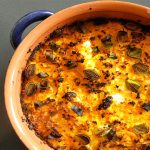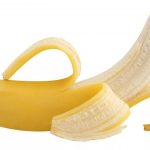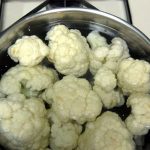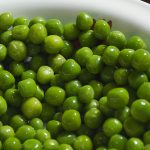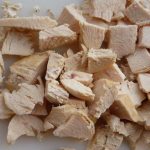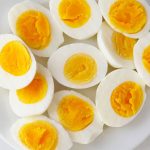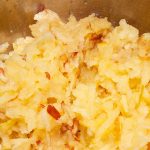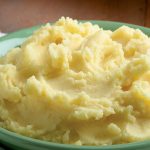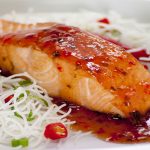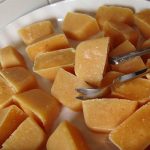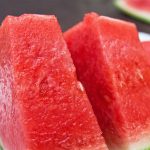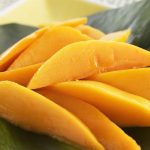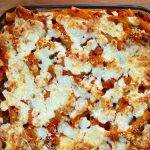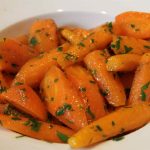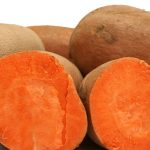Olwomen story of the week
By Karyn Holmes Posted on Aug 31, 2016
Finger food is basically little bite sized food that your toddler can easily pick and eat him or herself. Any food that falls under this definition qualifies as a finger food. From now onwards your baby starts developing his motor skills as the finger food will help make it much better and help the child withdraw his clumsiness if any. When your baby is 6-7 months old and is ready to hold the spoon then you must start giving him finger foods. Initially you need to start with the softest food so that his gums can chew it easily. In the later stages start feeding your baby with a little hard food so that the tooth eruption accelerates. Always keep this in mind that even a grape can be too big for your baby, so you need to cut it down into very small pieces to make it prefect for him to eat without any choking.
Today we have gathered a list of 17 finger foods along with their versatile nutritional values so that you can feed your child the proper amount of nutrition. So read the complete article and find out what is stored here for your little one.
17. Fish
Fish
Fish is one of the healthiest foods of water. It contains omega 3 fatty acids which are good for your child’s diet. This amazing food shall be added to your toddler’s plate for a number of reasons:
It has a soft meat which could be chewed by his baby teeth and gums easily.
Besides this it contains vitamin D and vitamin B range in it, which too is very essential for your child’s growth.
It contains omega 3 fatty acids that will act as a brain booster.
Note: remember that your toddler would only require the quarter of what you eat. Besides this always remember to select the fish which is low on mercury as a number of fish have been found to have a high level of mercury in them! So, look for the right one! Your baby is precious.
16. Cheese
Cheese
Give this once to your child and he will ask more for it. Cheese lovers are not only us but toddlers will also love to have it once they get to know its yummy cheesy taste. Cheese is derivative of milk and contains a number if health benefits your toddler would like to intake.
Cheese contains calcium, sodium, potassium and vitamin D in it.
It has also been found that cheese is supposed to stimulate the salivary glands found in the oral cavity which in turn helps to wash away the bacterial toxins and prevents the carious lesion to develop in the teeth.
Always look for the cheese that says it has at least 20-25 % calcium and 10 % vitamin D in it.
Just like milk the calorie intake of cheese also depends on the fact that weather the cheese is made out of full fat or either low fat. Check the labels on the cheese packets to see about your concern.
Note: remember cheese is not a good substitute for milk. A glass of milk contains (8 ounces) 100 IU of vitamin D, whereas, an average slice of cheese contains 40 IU of vitamin D.
15. Banana
banana
Banana is again a soft diet which your six month old toddler can even start having it in a mashed form. Banana is impacted with those healthy vitamins and minerals that are essential for your baby’s growth. Besides this it has a great a sweet and yummy taste on the taste buds makes the baby happy to have it. This food is low in saturated fatty acids.
Bananas contain vitamin B6, B2 and along them it also contains vitamin C.
Its quality of having high potassium and low sodium makes it healthy for the heart as well.
This is very easily mashed and can be even stored in a refrigerator for a while if the baby doesn’t want to have all at once.
Even if you keep it in the refrigerator for a while and it turns brown you can still provide your baby with it as there is no harm in the colour change.
Note: it is that banana could be given in diarrheas as it has good amount of mineral and can keep the body hydrated.
14. Eggs
eggs
Eggs are said to very healthy food not only for the toddlers but also for adults. There are so many varieties of eggs which one can have. From a cheese omelet to a scrambled egg and from a boiled egg to a half fried egg. Now as the studies have revealed that eating eggs excessively can raise your cholesterol levels because on egg approximately contains 213 mg of cholesterol.
Eggs are said to be high in proteins, iron, minerals and vitamin D too.
You need to keep a track on your baby’s diet because if your child is already taking foods which are high in cholesterol so eggs should be omitted from the diet as the bodily requirements are already been fulfilled.
But if you child is low on cholesterol diet and is taking fibrous food then routinely egg is not a bad option though.
Give them in boiled and chopped form so that your baby can easily have it without your assistance.
13. Grated Apples
Grated apples
Apples are one of those foods that need no introduction. As the famous quote says “an apple a day keeps the doctor away”, so, apples have been known to be nutritional food since the beginning. Some of them are red as cherries while some are green and the others have a yellowish shade. But almost all of them are juicy with some having a sweet taste and the others a bit tangy in taste. A medium apple would contain about 90 calories which are not that much on the scale.
They contain vitamin C.
And for a medium apple that is unpeeled has 5 g fibers in it.
They are also a good source of iron for your little one.
For your young cute little toddler it is better to provide him with grated apple. This would be very easy for the little one to have it.
Besides this you can even provide your child with a blended apple if you don’t feel like grating it.
12. Boiled Peas
Boiled peas
These cute little green balls are an attractive playful food for babies. They can have the little balls finding them something to play with. This little fellow veggie contains vitamin K which is very important for strong and healthy bones.
Peas are low in fats, but contain proteins and fibers in it.
They have got flavenoids namely catechin and epicatechin that are antioxidants in nature and provide the body with strong immunity.
Boil some peas and add very little salt to it, bowl it out for your little one and let him eat it on his own.
Now, if you are thinking to change the taste a bit for your baby, try frying them in small quantity of salted butter and serve this to your child. The little one would like it.
Note: Peas could also used to play the role of eyes if you are thinking to make a smiley face with some vegetables.
11. Mashed Potatoes
Mashed potatoes
Now comes the most loved veggie by everyone of us. No matter which age group you belong to this veggie is a favorite one of all. You can start your toddler with the mashed form of potatoes or maybe baked form. French fries could be given in the later stages once the little buddy is familiar with the deep fried stuff.
Potatoes contain vitamins and minerals needed for the growth your child.
Potatoes don’t let fermentation in the intestine and hence can help promote the growth of friendly bacteria positively.
Anthocyanin present in potatoes particularly in the red fleshed potatoes is a helpful chemical to stop the growth of influenza virus.
Potatoes are high in calories though.
Being high in calories you shall prefer giving them to your toddler in a little quantity. Just as little as 2-3 tbsps.
10. Sweet Potatoes
sweet patatoes
Sweet potatoes are a nourishing meal in a plate. Its orange flesh shows that these sweet potatoes are nourished with carotenoids. Carotenoids are antioxidants that protect the body cells from getting damaged.
Sweet potatoes are found to be sources of fibers hence give some of it to your baby when he is constipated.
It is even packed with vitamin C and vitamin B
They also contain potassium, calcium, folate manganese, copper and iron.
Bake some sweet potatoes and provide your little one with it. He would love the taste.
9. Baked Pumpkin
Baked pumpkin
This orange veggie can be provided to your baby by the age of 6 month. This vegetable contains vitamins and minerals and that makes it healthy for the baby to have. It contains calcium, magnesium, iron, potassium and different vitamins.
Pumpkins with their important biochemicals serve the immune system to strengthen its power better.
They promote natural killer cell properties.
Babies are usually infected with intestinal worms so pumpkins can be given in that case as well because these are anti-helmentic in their property as well.
Pumpkins also contain antioxidants that your baby will benefit from.
Feed your baby with either steamed or baked pumpkin.
8. Steamed Carrot
Steamed carrot
Carrots are orange-reddish in colour and are available in different sizes from 2- 10 inches. They are rich in vitamin A, which is good for the eye sight and so is supposed to be healthy form of a diet for your baby.
Carrots contain vitamin C which triggers the activity of white blood cells and hence boosts up the immune system of the body.
Its dietary fibers are supposed to provide with smooth bowel movements and so your baby could be given carrots when he is constipated.
It even helps to contribute in the elimination of the stomach disturbances produced by the intestinal worms.
You can steam the carrots for your toddler and let him have it easily.
7. Steamed Beet Root
Steamed beet root
This is a maroon coloured vegetable which is known for its ability to cure anemia. Beetroot is also known as table beet, garden beet or red beet etc. This vegetable is also used to purify the blood and as cure for fever.
Beetroot is also supposed to improve the digestion and improve the brain activity.
Beetroot contains calcium, magnesium potassium along with vitamin A, B, C, K, E etc recommended for your child good health.
Beetroot stores iron in large quantity so it will help your baby stay away from anemia.
Beetroot helps promote blood circulation towards the brain as well.
You can provide this vegetable to your baby about 1-2 tsp chunked up pieces once the toddler turns 6 months of age.
6. Sliced Mango
Sliced mango
Mangos are the king of all fruits. There bright yellow colour, sweet and juicy taste makes the fruit liked by all. No one can deny saying that they don’t like this fruit. If your toddler has a sweet tooth than give him this amazing fruit and let his taste buds enjoy the good taste. It is not like you are told to introduce this fruit merely because of its taste but because it has a number of nutritional values stored for your baby.
Your baby would not have trouble with his eye sight if he takes this fruit because it contains vitamin A which is necessary for the vision.
You also need not to worry about the digestive aspect of mangoes as they get very easily digested and their biochemicals namely esters, terpenes promote digestion.
This one also protects against common cold, sinusitis, rhinitis etc.
You can feed the pulp of this fruit to your baby or you can also provide him with little chunks, so small that they do not choke the young one.
5. Boiled Cauliflower
Boiled cauliflower
This vegetable gets its name because it looks like a flower. This is a versatile vegetable which could be cooked or taken raw. This one has very low calorie content and hence it is used as a diet food for the adults.
It fibrous content helps the little ones digestive system to work properly with regular bowel movements.
It has vitamin C which helps to boost up the immune system.
Folate present in it helps in the formation of new cells and also keeps the red blood cells strong.
Potassium found in cauliflowers help in the transmission of nerve impulses.
The antioxidants present in it helps to prevent the cancers prevalence in the body.
Serve your baby with little boiled chunks of cauliflower, little enough so that they do not choke.
4. Chicken Chunks
Chicken chunks
The favorite meal for kids and surely the toddlers will love it too. It is the most eaten form of meat by the adults and the kids as well. It is rich in proteins and helps in the building of muscles.
You can boil chicken and serve your baby with its shredded pieces.
You can also make very little chunks of chicken and fry them a little after boiling the well.
3. Peach Cubes
Peach cubes
Peaches are pulpy orangish coloured fruit that have a sweet to bit tangy taste. Little ones could be given this nourished fruit between 8-9 months of age. They work well for better bowel movements.
You can provide your little one with a bit of blended peach if he is suffering form constipated stomach.
Little ones already have an amazing baby skin and to add up it is said that peach makes the skin flawless.
Give your baby either small little cubes of this fruit or blend it if you want to feed him on his own.
2. Small Chunks Of Boiled Pasta
Small chunks of boiled pasta
Pasta is an easily cooked food where you just need to boil some water and a little pasta to it. These little chucks are made out of flour so it is healthy enough for the little one to have some in a while.
Pasta is cholesterol free and low in sodium.
Whereas pasta that is enriched contains folic acid that is good for your baby’s growth.
You can also add a little cheese to it to add some taste to it
Otherwise simple boiled pasta in a little oil and salt would be enough.
1. Seedless Watermelon
Seedless watermelon
Watermelon is red colored giant fruit with a dark green other cover. This fruit is the best summer time fruit for every one of us. It helps rehydrate and quench the thirst.
Give your toddler this hydrating fruit in small pieces without its seeds.
You can also hand over a thin slice of seedless water melon the little one so that he might suck on the fruit and have it.
Tips For Moms
Note down the names of fish that your toddler must not be having at all because of the high mercury content.
Cheese is not a substitute for milk if you were thinking over it.
Remember that too much banana in diet can lead to constipation.
If your child is having two slices of cake out if 8 slice then he is probably taking enough quantity of eggs if the cake you baked is having four eggs in it.
Young ones often get constipated; peas can help your baby in that case. During the period of constipation incorporate some peas daily.
Mothers can also store some boiled peas in a plastic sealed bag for a quick and easy later use.
The recommended time to start the toddler with potatoes in their diet is
The best way to find good pumpkins is to select a pumpkin with no soft spots or cuts and it must be orange in colour.
Boiling the mangoes and feeding pulp helps to stay protected against sun stroke.
Do not cook cauliflowers too much as it can banish its nutritional content easily from it.
For more on this story go to: http://olwomen.com/finger-foods-for-babies/


